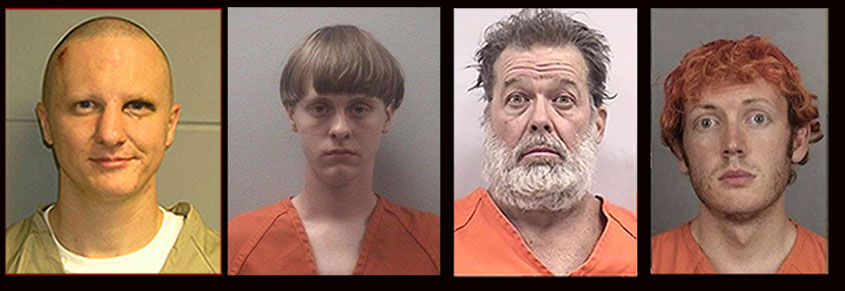Stephen Paddock is not the first monster to live among us. So let's stop acting like white male violence is unusual.
This article was made possible because of the generous support of DAME members. We urgently need your help to keep publishing. Will you contribute just $5 a month to support our journalism?
I know we’re not supposed to treat TMZ like a legitimate news source (because it isn’t), and if the online gossip shit fire was the only outlet marveling at the fact that Stephen Paddock, a white man described as a quiet loner by those who knew him, murdered dozens and injured hundreds more in Las Vegas on Sunday night, I might be inclined to ignore it.
But this is what reporters do in the wake of an attack like this—they scramble to find someone who knew the shooter, someone who will, inevitably, say that they can’t believe this reserved, keep-to-himself kinda guy would do a terrible thing like this. Witness: the Daily Mail, the Washington Post, and the Philadelphia Inquirer, plus the Boston Herald, which had the actual gall to print a headline calling Paddock a “mysterious nomad,” as if he were a rogue cosplayer looking for a little mischief on the woodsy back-trails, or some kind of Kerouacian drifter with a penchant for strong drinks and beautiful women.
Instead, of course, Paddock was a mass murderer who officials say meticulously planned his violent, armed attack on a packed concert in the heart of one of the country’s busiest, 24-7 tourism destinations.
Even the BBC closed a comparatively un-terrible piece with this howler: “The relative lack of red flags in Paddock’s personal history has only heightened the sense of bewilderment as a shocked nation asks: Why?”
There was no “lack of red flags” in Paddock’s history. He very closely fits the profile of the kind of person who is demographically most likely to commit a domestic terror attack in the United States: He’s a white man, and he wasn’t a Muslim, and in fact he wasn’t particularly religious at all, and he had unfettered access to guns. When the news media reports shock and surprise at the lack of warning signs before a quiet, secular white guy commits an act of domestic terrorism, they’re not actually reporting a real lack of warning signs—they’re bolstering America’s steel-plated, gold-engraved, marble-polished tendency to give violent white men the benefit of the doubt, every time and indefinitely. This despite the fact that evidence shows men who look and act like Stephen Paddock are more likely than anyone else to commit crimes of this nature.
To be clear, I don’t think there’s anything wrong with profiling the men—it’s always men, don’t @ me—who commit these crimes. I think there’s value in exposing the monsters who live among us. The monsters who are our brothers, our fathers, our dads, our neighbors, our bosses, our partners.
But I wonder when the journalists responsible for crafting the national, historical narrative around mass murder are going to connect the dots instead of scratching their chins over how yet another quiet, pasty loner of a guy could possibly take to the streets with murder and mayhem on his mind. I wonder if that time will ever come, when our newsrooms are still mostly white and mostly male, full of men who appear to be deeply reluctant to accept that the next terrorist in our American streets will probably look like them.
Journalists can absolutely report that people say they are shocked or surprised, but journalists don’t have to take it at face value that it is, objectively, shocking or surprising that a quiet, nonreligious white guy would murder people in the streets of an American city. It is perfectly possible—and, if we are ever going to confront America’s culture of toxic white masculinity with the aim of ending this kind of violence, absolutely necessary—for a journalist to quote a surprised neighbor or brother and observe, in the next sentence or graf, that Stephen Paddock (or the next mass-murdering dude like him) fits the demographic profile of an American domestic terrorist.
To treat white male violence of this nature as unusual, when evidence suggests it is anything but, is to perpetuate the racist, Islamophobic and often misogynist narratives that empower broader political oppression of Americans of color and Muslim Americans. To be surprised by Stephen Paddock, and to fail to challenge readers and audiences to recognize the cultural biases that blind them to the reality of who commits mass murders in this country, is to normalize racism and bigotry. And that normalization trickles up and out: It empowers leaders like Donald Trump to enact bans on Muslim travelers, it stokes a “Build the wall!” mob mentality, and it delays the reckoning that this country so urgently needs to have with itself on the subjects of racism and xenophobia.
